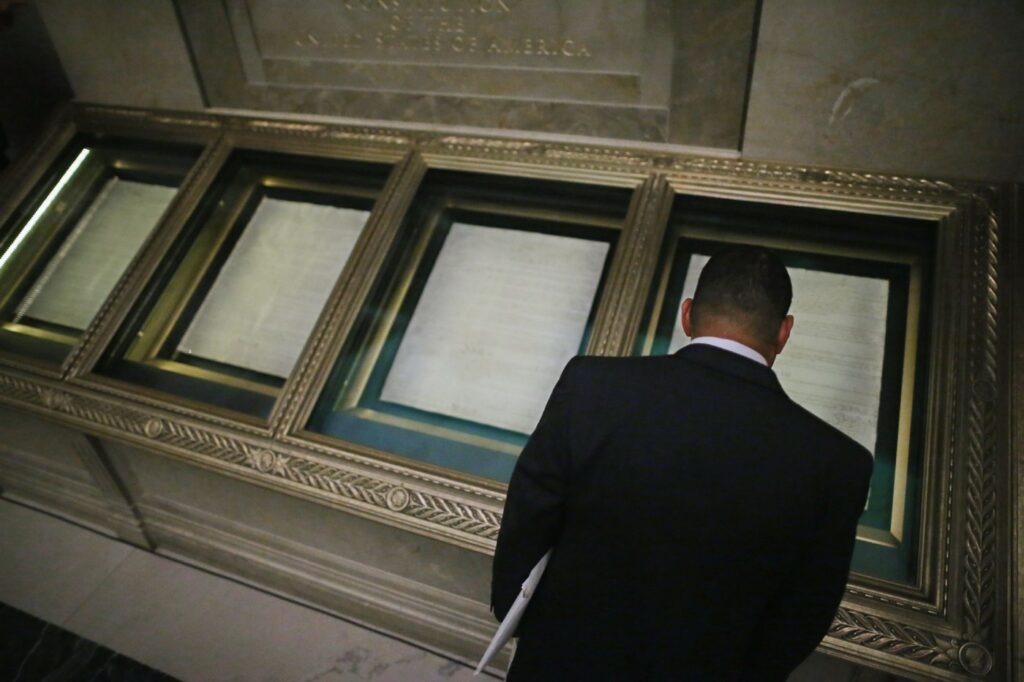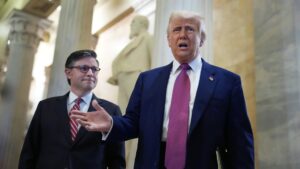
Every July Fourth, Americans gather to celebrate with fireworks, picnics, and parades, marking the nation’s independence with joy and pride. Yet, beneath the surface of these festivities lies a profound narrative of reflection and responsibility. July Fourth is not just a celebration of America’s birth; it is a reminder of the ongoing work required to fulfill the country’s founding promises.
The day is famously associated with the Declaration of Independence, drafted by Thomas Jefferson and ratified on July 4, 1776. However, it also marks the deaths of two Founding Fathers, Thomas Jefferson and John Adams, on July 4, 1826, exactly 50 years after the Declaration’s adoption. Their simultaneous passing underscores their deep connection to the American ethos.
The Enduring Message of the Declaration
As a young student, I memorized the opening lines of the Declaration of Independence and Abraham Lincoln’s Gettysburg Address. Initially, these were mere exercises in rote learning. Over time, however, the words have taken on a deeper significance, serving as a reminder of the civic duties and responsibilities that come with citizenship.
The Declaration was a bold statement, asserting the colonies’ right to dissolve political ties with Great Britain. Embedded within Jefferson’s words is the revolutionary idea that “all men are created equal,” endowed with “unalienable rights” to “life, liberty, and the pursuit of happiness.” These aspirational words laid the foundation for a nation striving towards equality, even though, in 1776, many were excluded from these promises.
“All men are created equal”—a principle that has guided American progress for nearly 250 years.
Lincoln’s Gettysburg Address: A Call to Action
Eighty-seven years after the Declaration, during the Civil War, Abraham Lincoln reiterated these ideals at Gettysburg. He posed a critical question: Could a nation conceived in liberty and dedicated to equality endure? Lincoln recognized the Civil War as a test of the American experiment’s resilience.
His words at Gettysburg, urging dedication to the “unfinished work” of those who fought, resonate today. Lincoln challenged us to ensure that “government of the people, by the people, for the people shall not perish from the earth.” This call to action remains relevant, urging each generation to continue the work of building a more perfect union.
Modern Leadership and Civic Responsibility
Throughout history, America has been blessed with leaders who have renewed the national spirit. Figures like John F. Kennedy, Martin Luther King Jr., and Ronald Reagan inspired the nation with their vision and commitment to shared responsibility. Their legacies remind us of the power of leadership grounded in ethical principles and civic engagement.
However, in the current century, such leadership seems harder to find. Today’s political discourse often feels divisive and superficial, lacking the compromise necessary for a functioning democracy. The inability to listen and find common ground threatens the very fabric of the democratic system.
“A functioning democracy requires compromise, but compromise has grown rare.”
The Path Forward: Embracing Our Role as Stewards
This July Fourth, as we celebrate, we must also reflect on our role as stewards of the American legacy. The Declaration of Independence and the Gettysburg Address are not merely historical documents; they are roadmaps guiding us toward a more inclusive and equitable society.
We are not the Founders, but we are entrusted with their vision. It is our duty to preserve and enhance the democratic ideals they set forth. The question remains: Will we rise above division and find the courage to compromise for the greater good?
As we stand on the shoulders of those who came before us, history and future generations will judge us by our actions. This is our moment to act, our opportunity to ensure that the promise of America endures.
This opinion piece is contributed by Jim Ludlow, executive producer of the Good Government Show Podcast and founder of the Good Government Institute, a nonprofit dedicated to fostering ethical leadership and civic engagement. He resides in Fogelsville. The views expressed are solely those of the author and do not necessarily reflect the views of this publication.






